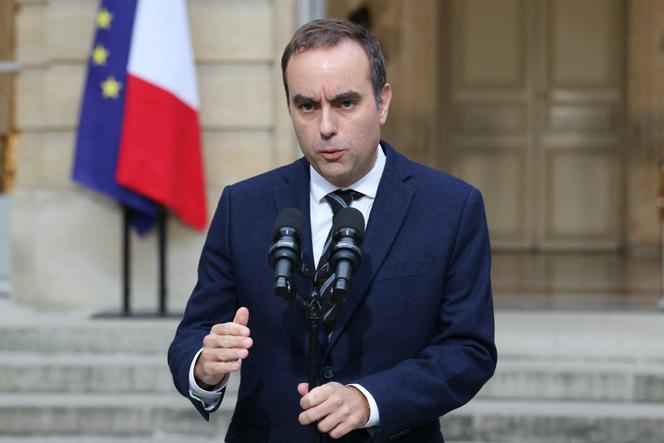


France's new Prime Minister Sébastien Lecornu formed a cabinet broadly similar to his fallen predecessor's on Sunday, October 5, almost four weeks after his appointment by President Emmanuel Macron.
The most significant change in personnel was at the Finance Ministry, ahead of a crucial budget battle in a hung Parliament. Eric Lombard, in office since December 2024, was replaced by Roland Lescure, a member of Macron's party who previously served as industry ministry between 2022 and 2024.
A former finance minister, Bruno Le Maire, made a return to government, filling the hole left by Lecornu as defense minister.
Bruno Retailleau, the head of the Les Républicains (LR) conservative party that has governed with Macron's coalition since September 2024, stayed on as interior minister. Rachida Dati, the Paris mayoral candidate who will be tried for corruption next year, also remained as culture minister.
Elsewhere, longtime Macron allies Gérald Darmanin and Elisabeth Borne were renewed as ministers of justice and education, respectively. The ministers of foreign affairs, the environment, health and labor, agriculture and overseas territories were all re-appointed.
In early September, Macron named 39-year-old Lecornu the seventh prime minister of his mandate in a bid to defuse a deepening political crisis. French politics has been in turmoil since Macron gambled on snap elections last summer in the hopes of bolstering his authority. The move backfired, producing a Parliament fractured between three rival blocs.
Lecornu's two immediate predecessors, François Bayrou and Michel Barnier, were ousted in a standoff over France's austerity budget in a deeply divided Parliament. Macron plumped for one of his closest allies rather than seeking to broaden the appeal of the government across the political spectrum.
For the past month, Lecornu has held a series of consultations with centrist allies and opposition leaders on the left and right in a bid to agree a non-aggression pact in parliament and adopt the budget. No party has enough seats to govern on its own.
Members of LR met on Sunday to decide whether to join Lecornu's government, apparently delaying the announcement of the cabinet. Laurent Wauquiez, who leads the LR group in parliament, said he saw no "conditions" for joining Lecornu's cabinet, while party leader Bruno Retailleau said he was in favour.
Over the weekend, Lecornu sent a letter to the leaders of Macron's centrist camp and the Republicans pleading for unity. "With only a very narrow majority, the government will have to make compromises with other political groups, without abandoning its convictions," said the letter.
Lecornu said it was important to reduce public spending and urged a response to "the demand for fiscal justice expressed by our fellow citizens." Some taxes "must be reduced in order to support household purchasing power and business competitiveness," he added.
Lecornu will deliver a government policy statement in Parliament on Tuesday. In recent days, Lecornu has announced a number of concessions, including a pledge not to ram his austerity budget through parliament without a vote, but members of the opposition said they wanted more.
Several left-wing parties have threatened to put forward a no-confidence motion against Lecornu next week. Far-right leader and presidential hopeful Marine Le Pen said she was waiting to hear Lecornu's general policy speech on Tuesday before deciding on any further course of action.
